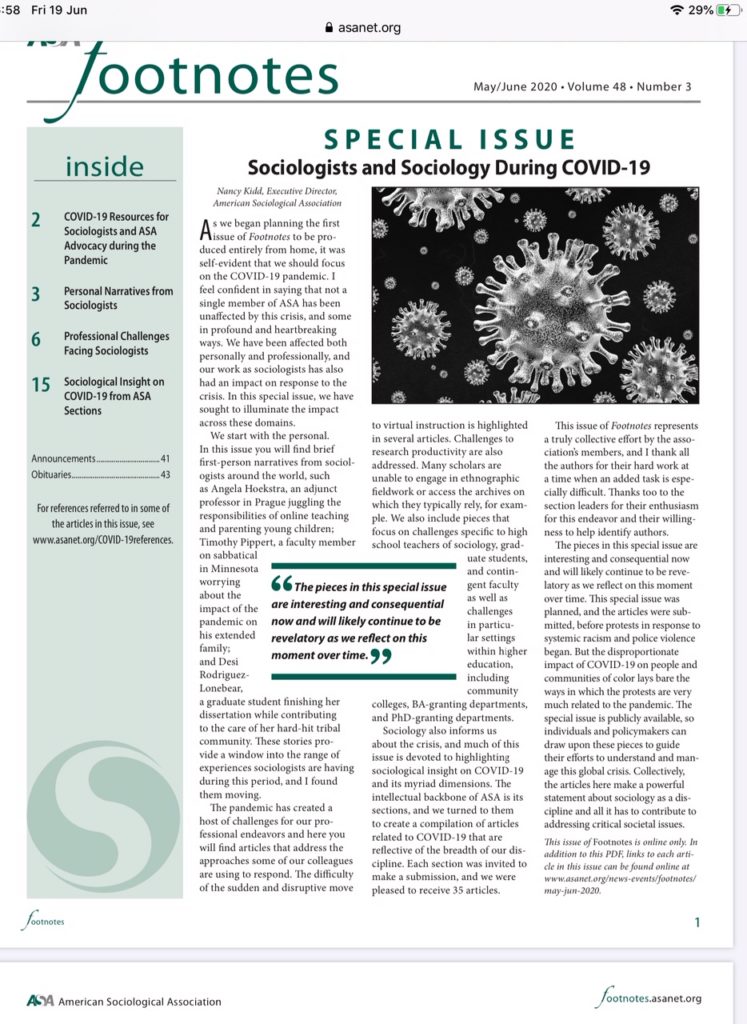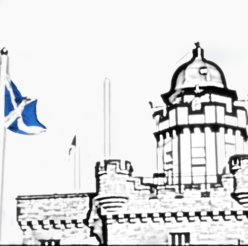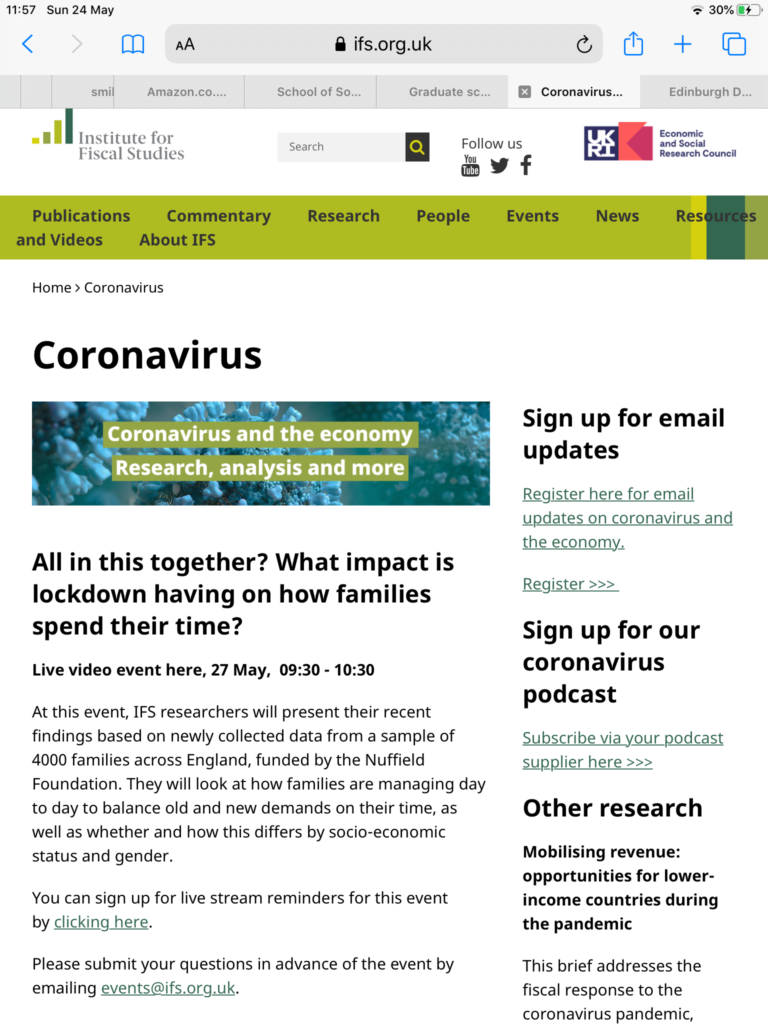Liz Stanley
The latest issue of the American Sociological Association’s Footnotes, for May/June 2020, has recently appeared. Also available electronically here, it takes the form of a print publication of 46 pages, and is filled with short contributions on the theme of sociology during COVID-19. This is actually sociology in the US, although this is not made clear but is implicit. There are many short and very accessible essays which provide considerable food for thought.
The issue starts with a number of first person narratives by an array of sociologists about their experiences and reactions. This is followed by essays on challenges to the profession and in particular to research productivity because of the foreclosure of, for instance, fieldwork or archival research sites. The bulk of the issue is concerned with sociological insights on COVID-19 provided from the many different sections of the ASA, with each section invited to contribute and 35 short essays resulting. An editorial comments that “Collectively, the articles here make a powerful statement about sociology as a discipline and all it has to contribute to addressing critical societal issues“ (p1). It certainly marks the moment and provides a wide set of thoughtful interesting contributions.
The opening personal narratives (why are they called narratives? They are simply short statements of personal experience and surely there is more to narrative than this) are interesting and at points moving, while being concerned with specific locations and persons. By and large they do not concern any ‘outside’ to the US context. More surprisingly, while COVID-19 is rampaging as a pandemic, including in countries close to the US, there are oddly few points at which the international context is registered across the 35 section essays. The rest of the world barely figures, and instead there is mainly a curious parochialism rooted in the specifics but seeing this as generalities. It is interesting to think about the British equivalent in this respect and whether it too might be fettered by its national roots and specifically British concerns. Casting an eye over the BSA website and the area concerned with COVID-19, and also its members print publication Network, would be interesting in this respect. Comparing Footnotes with the Edinburgh Decameron is like comparing a large fish with a tiny bicycle, but still some interesting points come to mind.

Footnotes speaks on behalf of a national discipline or rather that part of it with membership of the ASA (with some members in other national settings). Contributors to the Edinburgh Decameron speak for ourselves as members of a small located community rather than on behalf of wider groupings. Its localism is deliberate and upfront. Footnotes is concerned with marking a particular point in time through a considered set of statements which mark out the trajectories of the ASA sections and appear in a fixed format. The Edinburgh Decameron is all about process and a plethora of voices, often disagreeing, and its contributions appear at any point at which someone has something to say, so it is always changing. Footnotes is rather dominated by the print format. Many of its contributions are split between pages, appearing on one page, and then continuing at the bottom or the side of the next rather than following directly on. This makes for a disjointed process of reading, with the mind’s eye going from one essay topic, which is left part-way through, to another only 2/3 finished, then picking up the earlier, then finishing off the following, and so on and so on. It is certainly available in an electronic version, but it is conceived with print in mind. The Edinburgh Decameron takes a form dominated by WordPress templates, and its curators (information on the website) find the blog templates not entirely satisfactory for both recording specific localisms in an unfolding processual way, and creating an archive in which readers can easily find past as well as present posts. It is/not a blog. Broad anonymised data in analytics shows a general pattern of reading that starts with recent posts, and from there goes onto other material, with some pages only glancingly arrived on, and others having much time spent on them.
But the Edinburgh Decameron is indeed a small and local community response, and obviously the better comparison is between the ASA and the BSA. Contributions on this are called for! And what about other national sociologies? Also greatly welcomed would be more contributions from past and present, and also future, members of the Edinburgh community living outwith Scotland and the UK. A pandemic is a pandemic and we bracket other parts of the world at our collective peril.


